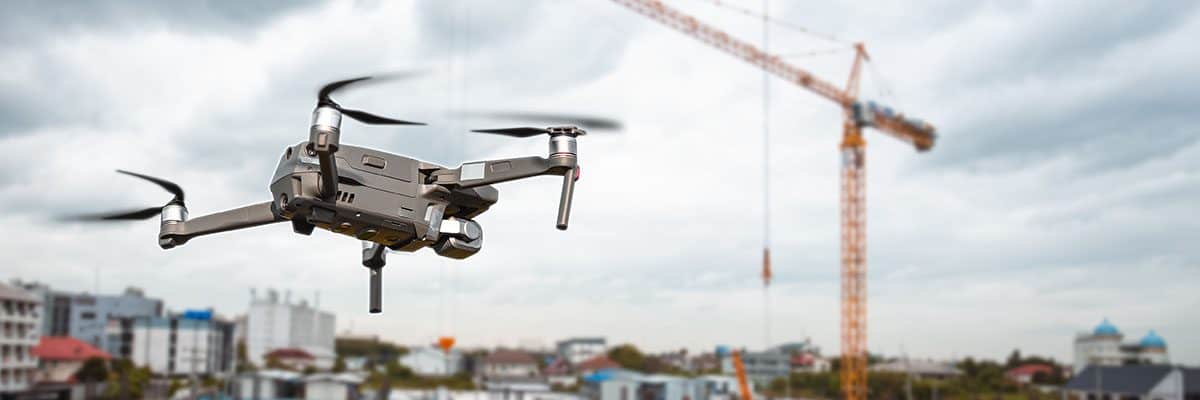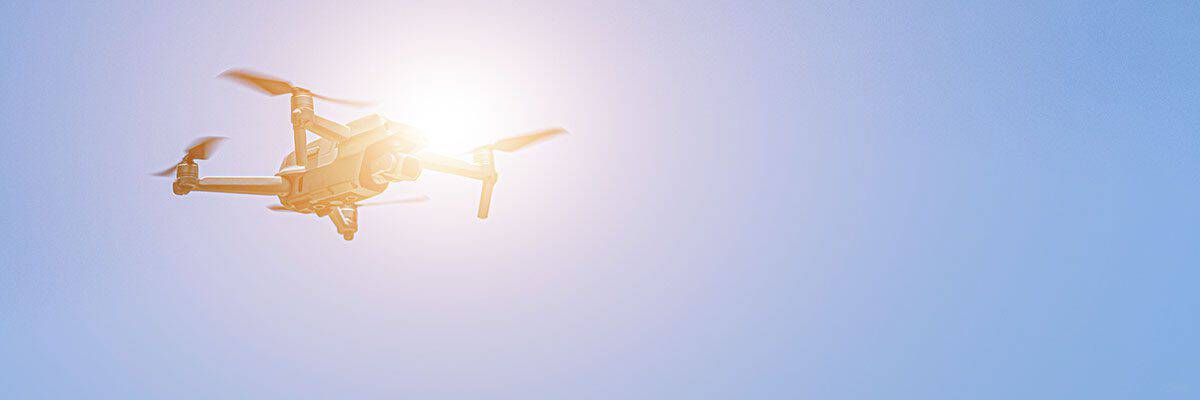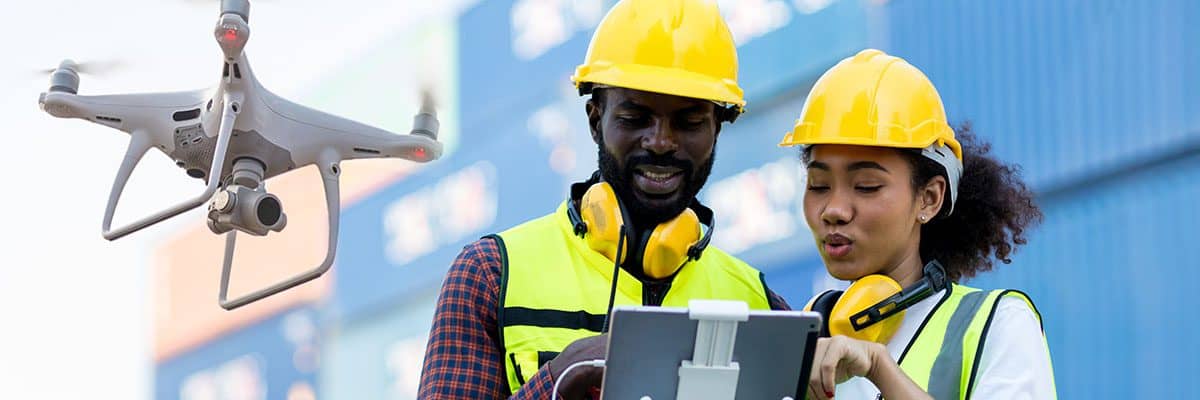
Drones and Career Readiness: Preparing Students for Future Opportunities
In the span of a few years, drones have transformed from intriguing gadgets into versatile tools that are reshaping industries across the board. From agriculture to filmmaking, construction to environmental monitoring, drones have become an integral part of modern business. As these unmanned aerial systems soar higher, the connection between drones and future job opportunities becomes increasingly evident. In the face of this technological revolution, drone programs and career readiness have never been greater.
The Rise of Drones in Various Industries
We no longer consider drones mere novelty items. Today, they are pivotal players in numerous industries, offering unparalleled advantages and transforming businesses. In agriculture, drones have become essential for precision farming, allowing farmers to monitor crops, assess soil health, and optimize irrigation with unprecedented accuracy. In construction and real estate, these aerial tools have revolutionized site inspections and progress monitoring, enhancing project efficiency and reducing costs. Meanwhile, the entertainment industry has embraced drones for captivating aerial cinematography, enabling filmmakers to capture breathtaking shots that were once unimaginable.
Environmental monitoring and conservation efforts have also been significantly boosted with drones. Drones provide researchers with the means to track wildlife populations, monitor deforestation, and assess climate change impacts on remote ecosystems. Drones have become the eyes of the sky, allowing us to gather data from vantage points previously inaccessible.

The Importance of Career Readiness in a Rapidly Evolving Job Market
In today’s fast-paced and dynamic job market, preparing for the ever-evolving landscape is crucial. Skills in demand today might not necessarily be relevant tomorrow. This reality underscores the importance of career readiness – a concept that stretches beyond traditional education and focuses on equipping individuals with the skills, knowledge, and adaptability needed to excel in their chosen careers.
As industries evolve, driven by technological advancements like drones, the job market demands professionals who can not only embrace change but thrive in it. The ability to learn relevant skills, adapt to emerging technologies, and navigate complex and interdisciplinary environments sets successful individuals apart.

The Connection Between Drones and Future Job Opportunities
Enter the realm of drones – an area where the connection between evolving technology and future job opportunities is clear. The rapid integration of drones into industries ranging from logistics to disaster management indicates that the demand for skilled professionals who can harness the potential of these aerial devices will only grow. As drones continue to disrupt traditional workflows and open up new possibilities, new job roles will emerge that require a blend of technical knowledge, creativity, and problem-solving skills.
From drone operators and data analysts to software developers specializing in drone-related applications, the spectrum of careers in this field is expansive. Furthermore, as drones evolve and diversify, traditional roles will transform, pushing the boundaries of what we can achieve.
In the upcoming sections, we will delve deeper into the role of drones in modern industries. We will also discuss the specific skill set required for drone-related careers and how educational institutions integrate drones into curricula to prepare students for exciting opportunities. In an age of rapid technological change, let’s explore how drones and career readiness work together.

The Role of Drones in Modern Industries
As we’ve seen, drones have infiltrated many industries, bringing innovation and efficiency to sectors once considered traditional and static. We briefly discussed how drones are used in the agriculture, construction and real estate, entertainment, and environmental sectors. Now, let’s look deeper into additional industries that benefit from UAS and can provide exceptional career paths.
Infrastructure Inspection and Maintenance
Drones are indispensable for managing critical infrastructure. Their ability to conduct detailed inspections of bridges, power lines, pipelines, and other vital assets has revolutionized maintenance practices. By capturing high-resolution imagery and data, drones facilitate comprehensive analysis, identifying structural defects, corrosion, and potential risks. This aerial perspective minimizes human intervention in hazardous environments, enhances safety, and extends the operational lifespan of infrastructure components.
Potential career opportunities
- Inspector
- Maintenance Technician
- Data Analyst
- Operations Manager
- Project Manager
- Safety Officer
Telecommunications and Connectivity
The telecommunications sector is leveraging drones to address connectivity challenges and expand network reach. Equipped with sophisticated communication technologies, drones function as flying cell towers, bridging coverage gaps in remote areas or during emergencies. This dynamic application ensures uninterrupted communication in disaster-stricken or underserved regions. Drones are pivotal to maintaining connectivity, enhancing emergency response, and fostering digital inclusion.
Potential career opportunities
- Network Engineer
- Communication Specialist
- Emergency Response Coordinator
- Regulatory Compliance Specialist
Maritime and Oceanography
Drones have found a crucial role in the maritime and oceanography sectors, revolutionizing data collection and monitoring practices. Drones with specialized marine sensors traverse vast ocean expanses to gather data on ocean temperatures, currents, aquatic life, and pollution levels. This comprehensive information empowers oceanographers, fisheries, and environmental agencies to make informed decisions about sustainable marine management. Drones provide an efficient means of collecting data from challenging maritime environments, contributing to enhanced marine research and conservation efforts.
Potential career opportunities
- Environmental Scientist
- Marine Resource Manager
- UAS Marine Biologist
- UAS Oceanographer
- Environmental Analyst
Geological Survey and Mapping
Geological surveying and mapping have undergone a paradigm shift with drone integration. These unmanned systems offer an innovative dimension to land surveying and topographic mapping. By capturing high-resolution imagery, drones enable the creation of precise 3D models of terrains, facilitating soil analysis, hazard identification, and infrastructure planning with unparalleled accuracy. Drones expedite data acquisition, enhance surveyor safety, and optimize geological exploration processes.
Potential career opportunities
- Geologist
- Cartographer
- Remote Sensing Specialist
- Urban Planner
- Environmental Consultant

The Skill Set Required for Drone-Related Careers
The drone revolution doesn’t just require piloting skills; it demands a comprehensive skill set that combines technical expertise with skills tailored to a rapidly changing landscape. On the technical front, proficiency in drone operation, data analysis, and programming is essential. Drone operators must navigate complex flight scenarios, capture and interpret data, and develop customized software solutions for specific applications.
In parallel, soft skills like communication and collaboration are vital. Drone-related careers often involve interdisciplinary work, requiring professionals to convey technical insights to non-technical stakeholders effectively. Problem-solving takes on a new dimension as drone operators must troubleshoot unforeseen glitches, adapt to changing conditions, and make informed decisions on the fly.
Imagine all the learned skill sets you can attach to your resume.
- Drone Operation and Piloting Skills
- Technical Skills
- Data Analysis and Interpretation
- Programming and Software Skills
- GIS (Geographic Information System) Knowledge
- Aerial Photography and Videography Skills
- Communication and Collaboration Skills
- Problem-Solving Abilities

Integrating Drones into Education for Career Readiness
Recognizing the growing importance of drone technology, educational institutions are reshaping their curricula to prepare students for drone-related careers. STEM (Science, Technology, Engineering, and Mathematics) programs now include hands-on drone piloting workshops, data collection and analysis projects, and even collaborative initiatives that bridge technology with art and environmental studies.
Furthermore, partnerships with industry professionals provide students with valuable insights and real-world exposure. Guest lectures, workshops, and internship opportunities connect students with experts who can offer practical perspectives on the evolving drone landscape.

Case Study: Successful Drone Education Programs
One of our very own Mission Coordinators, Kaleb Williams is a graduate of the UAS Management program from the University of Louisiana at Monroe. Coincidentally, while completing his final 20-page paper for the program, he contacted FlyGuys for an interview about the drone industry. A few months later, our Ops team reached out to Kaleb, offering him a job. He promptly accepted and now he is able to put his knowledge and passion to work every day, all while being part of an innovative team in a breakthrough industry.
“The ULM UAS program equipped me with a strong foundation,” Kaleb tells us. “I learned core principles such as aerodynamics, avionics, and data analysis, which are applicable across various technological advancements. Additionally, the emphasis on continuous learning and exposure to emerging trends within the program has honed my ability to quickly grasp and integrate new technologies.”
Here are just a few Accredited Drone Education Programs. Note that many more educational institutions offer a UAS program.
- Kansas State University
- North Dakota State College of Science
- Embry-Riddle Aeronautical University
- Middle Tennessee State University
- Gulf Coast State College
- Austin Community College
- Hinds Community College, MS
- Yavapai College, AZ
Preparing Students for a Drone-Driven Future and the Dynamic Landscape of Drone-Related Careers
As the drone industry evolves, cultivating a growth mindset is essential. By encouraging entrepreneurship and innovation, students can develop innovative drone applications beyond drone technology users. Providing insight into career paths and opportunities ensures students are prepared to navigate the booming and diverse drone job market while simultaneously providing insight into career paths and opportunities. Our search for drone-related careers leads us to emerging sectors such as drone traffic management, drone repair, and urban planning. To remain relevant and seize new opportunities in this field, continuous learning and upskilling will prove vital.
Career readiness and drones are inextricably linked, and as drones change industries and job roles, it is essential to cultivate technical knowledge, adaptability, and life skills to be successful. By combining a forward-looking perspective with the right educational foundation, students can pursue rewarding and impactful careers in a drone-driven future. The skies are open and the possibilities are endless.